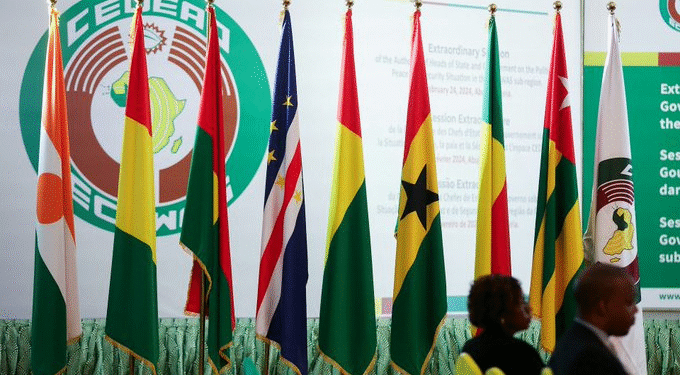The Economic Community of West African States (ECOWAS) has reaffirmed its commitment to fairness, inclusivity, and regional solidarity in the sharing of leadership positions within its institutions, as ministers from across the region met in Abuja for a crucial review session.
The Ad-hoc Ministerial Meeting on the Rotation of Statutory Appointees of ECOWAS Institutions officially opened on Tuesday at the ECOWAS Commission headquarters. The meeting marked a major step in reviewing the distribution of key leadership roles for the 2026–2030 term, as the current mandates approach completion between July and October 2026.
Chairing the session, Nigeria’s Minister of State for Foreign Affairs and Chairperson of the Ad-hoc Committee, Ambassador Bianca Odumegwu-Ojukwu, underscored the need for equitable representation across member states, especially after the recent institutional reforms that reduced the number of statutory positions.
“The appointment of statutory positions within ECOWAS institutions remains a matter of great importance and sensitivity among member states,” Odumegwu-Ojukwu said. “This has become even more delicate following the reduction in available positions after the institutional reforms.”
She urged delegates to prioritise regional unity over national or personal interests, adding that the process must be guided by fairness, inclusivity, and the long-term goals of the ECOWAS community.
“In this context, our committee must ensure that all member states — including smaller or less resourced ones that have shown unwavering commitment to the organisation — are fairly represented,” she added.
The ad-hoc committee was formed after a resolution adopted during the 94th Ordinary Session of the ECOWAS Council of Ministers in June. Its members include representatives from Benin, Côte d’Ivoire, Gambia, Ghana, Guinea-Bissau, Nigeria, Senegal, and Togo.

In his remarks, the President of the ECOWAS Commission, Dr. Omar Touray, welcomed delegates and reaffirmed the Commission’s commitment to a transparent and inclusive transition process.
He noted that the framework being reviewed is based on the 2012 Supplementary Act and supported by data tracing back to the community’s establishment in 1975.
“The expectation is that this committee will review the proposal with the broader interest of the community in mind,” Touray said, while commending Nigeria for hosting the session.
The committee is expected to finalise its recommendations ahead of the ECOWAS Council of Ministers’ statutory meetings in December, after which the Authority of Heads of State and Government will make a final decision.









